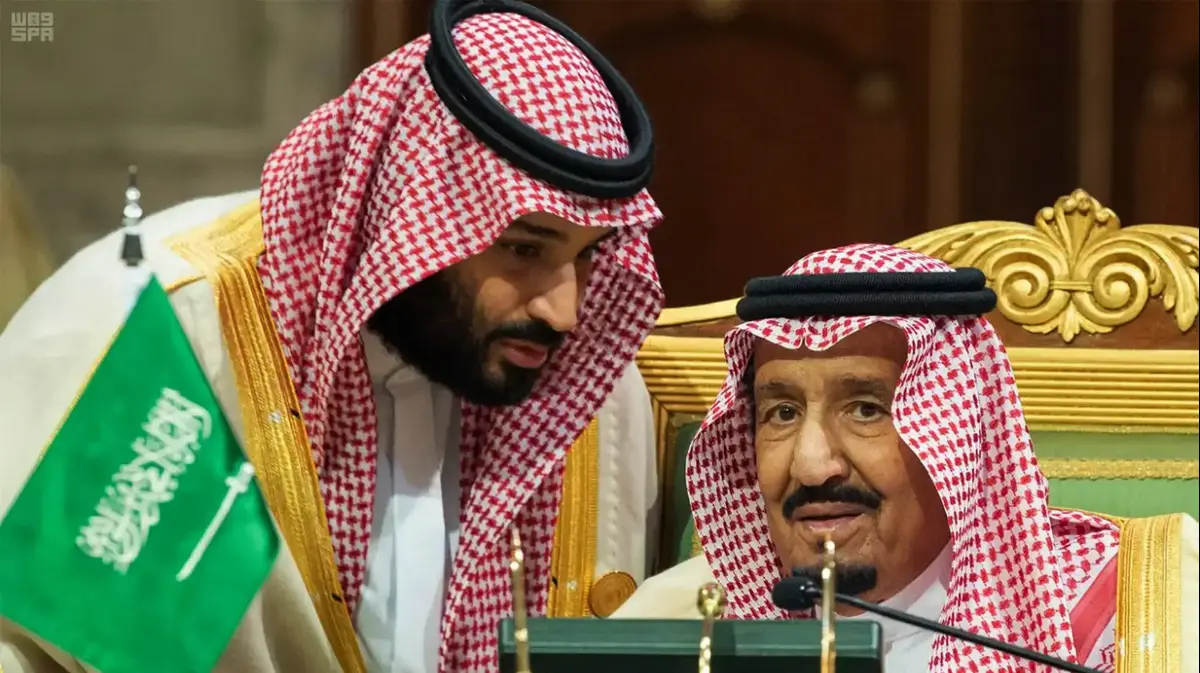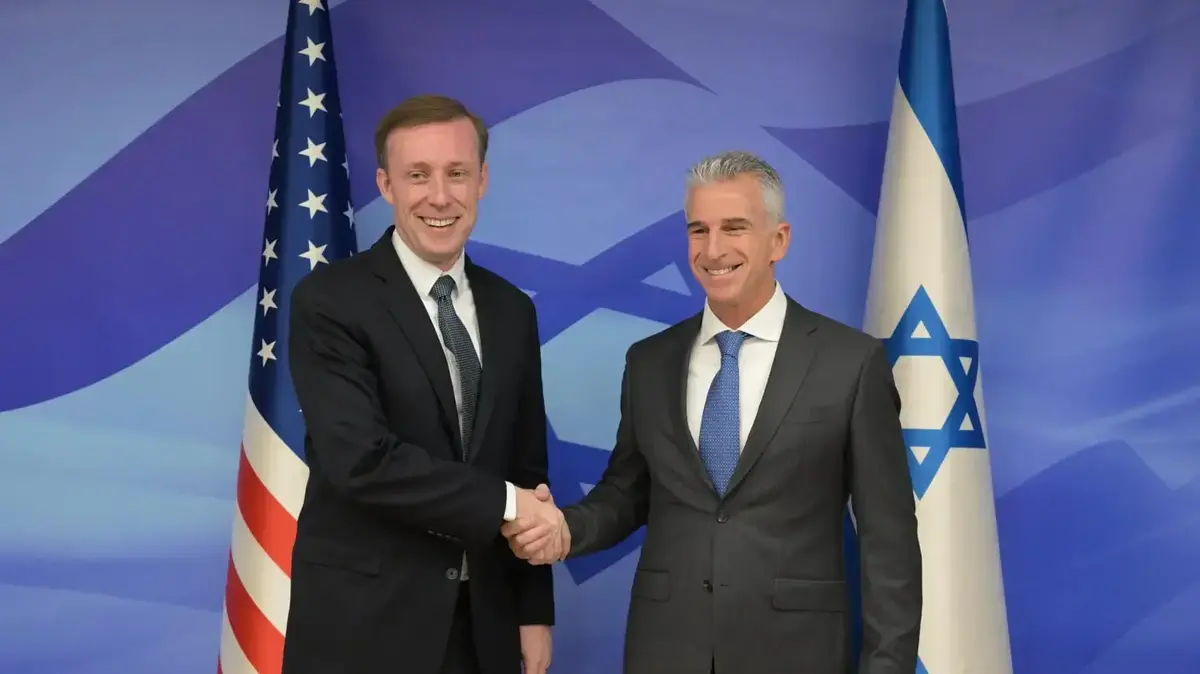- news
- World news
- the Middle East
Historical agreement with the United Arab Emirates
Computers Steps: In Saudi Arabia, they are silent in the face of the agreement between the Emirates and Israel
Like Israel, Riyadh sees Iran as the great enemy, but any normalization could jeopardize the king's status, "the protector of the holy places." The move by the Emirates, which in effect defies the Saudi peace initiative of 2002, could boost its position in the United States, especially in the event that Biden wins
Tags- Saudi Arabia
- United Arab Emirates
- Salman King of Saudi Arabia
- Muhammad bin Salman
Reuters
Saturday, 15 August 2020, 11:53 Updated: 12:58While the media and people in the United Arab Emirates celebrated the normalization agreement with Israel as a diplomatic victory that helps the Palestinians, there is a thunderous silence in Saudi Arabia, which for many years has pursued regional policy toward Israel.
Experts see the surprise agreement announced on Thursday as a strategic leap for the UAE's regional and global status, so much so that it will overtake its neighbor and strong ally, especially in its critical relationship with Washington.
Read more on the subject
- The Palestinians are angry about the agreement with the Emirates, and Israel is preparing for a response
- Erdogan: Suspended relations with the Emirates; Zarif: The Agreement is an American theater
- After normalization of relations: First conversation between Sarah and the Jewish community in the United Arab Emirates
- Hair transplant for men and women: Istanbul is open and offers a natural and permanent solution
Saudi Arabia is the largest Gulf economy and the world's largest oil exporter, but the United Arab Emirates has pursued more assertive foreign policies in recent years, particularly in conflict areas such as Libya, Sudan and Yemen. In July last year, the Emirates announced a withdrawal from Yemen, after years of joint fighting with Saudi Arabia against the pro-Iranian Houthi rebels.
Poster in support of the President of Yemen, the King of Saudi Arabia and the President of the United Arab Emirates in the city of Eden (Photo: Reuters)The agreement was a rare diplomatic victory in the Middle East for US President Donald Trump, ahead of the November 3 general election. However, if he loses to Democratic candidate Joe Biden, the UAE will be able to gain an advantage over Saudi Arabia in relations with the United States.
"The move puts the UAE in a comfortable position in case Biden wins, as it will help it improve the situation with Congress and thus make Saudi Arabia inferior and more exposed than ever," said Neil Killiam of the Chatham House Research Institute. "This must be the main concern for the Saudi leadership at the moment - and what leads its calculations to a response to the move between the UAE and Israel."
Last year, Congress passed a law curbing the sale of weapons to Saudi Arabia and the United Arab Emirates, in an attempt to pressure the Gulf states accused of harming civilians in their war in Yemen. President Trump has vetoed the law.
Even before an official response from the kingdom, Saudi Twitter users shared photos of King Faisal, who during the Yom Kippur War in 1973 led an oil embargo aimed at punishing the United States and other countries that supported Israel. They shared a quote from one of the king's speeches: "Even if all the Arabs agree to accept the existence of Israel and divide Palestine, we will never join them."
At the same time, one of the leading hashtags in Saudi networks yesterday was the "Gulf against normalization."
More on Walla! NEWS
UAE Foreign Minister Walla! NEWS: "Want to move forward quickly, convinced there will be no annexation"
To the full article
The biggest threat - Iran
Saudi Arabia, a close ally of the United States, has been ruled by 84-year-old King Salman since 2015. During this period, historic reforms took place at home and abroad led by his son and regent, Muhammad bin Salman, who is the actual ruler of the kingdom.
Like Israel, Saudi Arabia sees Iran as the biggest threat to the Middle East. The growing tension between Tehran and Riyadh has raised speculation that their common interests will lead to cooperation, and there have been signs of this in recent years.
However, King Salman's title as the holiest of places for Islam makes it difficult for the kingdom to take a step similar to that of the United Arab Emirates, especially when Jerusalem's status remains unresolved and a peace agreement between Israel and the Palestinians is not in sight.
"Such a move could have resulted in a loss of public support in a time of significant economic crisis, and would strengthen Iran in such a delicate period," Killiam said.
The agreement between the United Arab Emirates and Israel contradicts the Arab League's peace initiative of 2002, which has been dying for many years. The initiative, led by Saudi Arabia, conditioned normalization with Israel on withdrawal from the territories. Although the agreement between Jerusalem and Abu Dhabi froze the planned annexation, the Palestinians, who see East Jerusalem as their future capital, were outraged and said it was a "betrayal."
The Trump administration hints that other countries will follow the UAE. Bahrain, a close ally of the Saudis, and Oman, which hosted Prime Minister Benjamin Netanyahu in 2018, have issued statements in support of the agreement, while there have been no reactions from Kuwait and Qatar, which has been in sharp political conflict with Saudi Arabia, the UAE, Bahrain and Egypt since 2017.
"Everyone in the UAE is so happy and satisfied with the decision, the negativity you see comes only from outside," wrote Hassan Sajwani, who describes himself as a local reporter on current affairs and the fight against terrorism. He tweeted the Israeli flag with a heart emoji, and wrote "Visit Israel."







